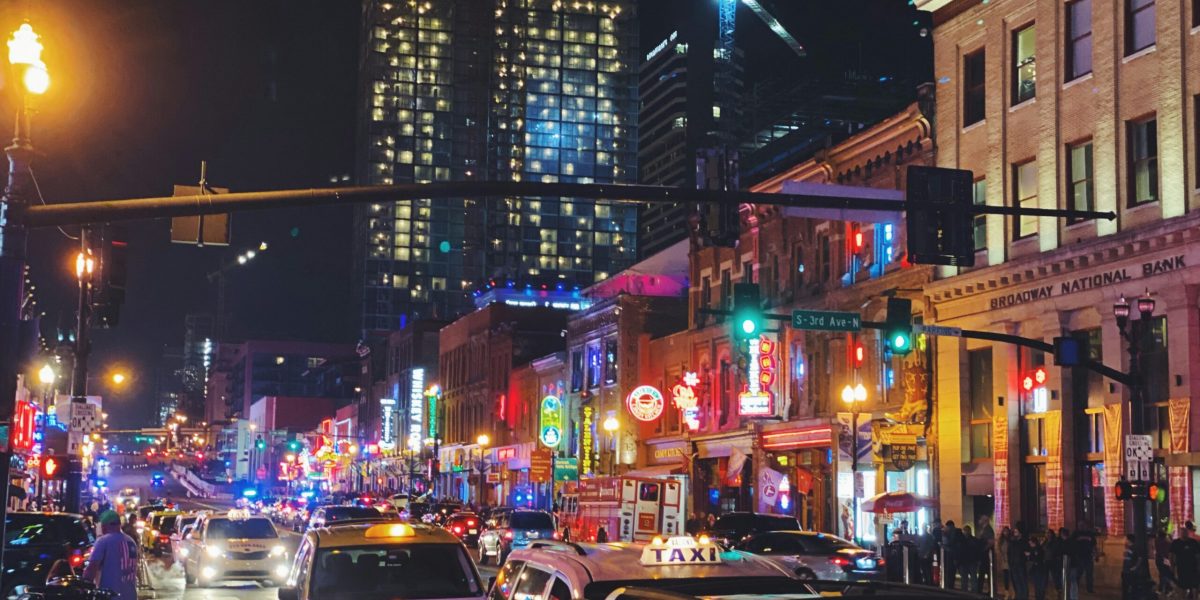Nashville, Tennessee, known for its rich music heritage, is also home to a dynamic and growing transportation landscape. As the city expands, the demand for efficient transportation methods in Nashville continues to rise. Whether commuting to work, exploring the city’s vibrant neighborhoods, or heading to a concert downtown, locals and visitors alike have several options to get around. From public transit to biking, Nashville’s transit system is evolving to meet the needs of its community.
How Does Public Transit Serve Nashville?
Public transit in Nashville has been steadily improving, with WeGo Public Transit at the center of these developments. Formerly known as the Nashville Metropolitan Transit Authority (MTA), WeGo provides bus routes connecting key parts of the city. With more than 20 routes running through downtown and surrounding areas, buses remain a cost-effective and reliable option for many commuters.
For those working or attending events downtown, WeGo’s Music City Circuit offers free transportation between popular destinations like Bridgestone Arena and the Tennessee State Capitol. This service is especially valuable for tourists looking to navigate the city center with ease.
Nashville is also exploring future enhancements to its public transit infrastructure. Initiatives like the Nashville Transportation Plan aim to expand bus rapid transit (BRT) services and improve connectivity across neighborhoods. These upgrades promise to make public transit a more viable choice for daily commuting.
Are Ride-Sharing and Car Rentals Convenient?
For those who prefer flexible travel, ride-sharing services like Uber and Lyft are widely available throughout Nashville. These platforms offer convenience, especially for short trips or late-night outings. Ride-sharing is particularly popular among visitors who want to experience Nashville’s nightlife without worrying about parking or navigating unfamiliar streets.
Car rentals also remain a strong option, particularly for travelers planning to explore areas outside of downtown. Nashville’s proximity to natural attractions like Radnor Lake or Percy Priest Lake makes having a vehicle ideal. Major rental services are easily accessible at the Nashville International Airport, ensuring a smooth transition from arrival to exploration.
For environmentally conscious travelers, electric vehicle (EV) rentals and charging stations are becoming more accessible, aligning with the city’s commitment to sustainability. As Nashville continues to grow, the adoption of green transportation options is likely to expand.
How Can You Travel Sustainably in Nashville?
Nashville’s efforts to embrace sustainable transportation have opened the door to greener commuting options. Biking, for instance, has gained popularity with the development of dedicated bike lanes and trails. The Music City Bikeway offers a safe and scenic route through the heart of the city, connecting parks, neighborhoods, and downtown attractions.
For those without their own bikes, BCycle, Nashville’s bike-sharing program, provides an affordable way to rent bicycles for short trips. With docking stations located at hotspots like Centennial Park and the Gulch, BCycle makes cycling accessible to both residents and tourists.
Walking is another sustainable option, particularly for navigating Nashville’s compact downtown area. The city’s pedestrian-friendly design allows visitors to explore attractions like Broadway, the Country Music Hall of Fame, and Nissan Stadium on foot. For many, walking combines the benefits of exercise with the opportunity to soak in Nashville’s vibrant atmosphere.
What Are the Commuting Challenges in Nashville?
Like many growing cities, Nashville faces challenges in meeting the transportation needs of its expanding population. Traffic congestion during peak hours is a common concern for commuters, particularly along major routes like Interstate 40 and Interstate 65. For those driving, finding parking downtown can also be a struggle, with limited spaces and rising costs.
Public transit, while improving, still faces criticism for limited coverage and frequency in some areas. Suburban residents often rely on personal vehicles due to the lack of reliable bus routes connecting outer neighborhoods to the city center. These challenges highlight the importance of ongoing investment in Nashville’s transportation infrastructure to accommodate the city’s growth.
Despite these obstacles, Nashville’s transportation landscape is evolving to address these concerns. Community-led initiatives and citywide projects continue to prioritize innovation, sustainability, and accessibility.
How Is Nashville Preparing for the Future?
The future of transportation in Nashville looks promising, thanks to long-term plans and investments. The Nashville Transportation Plan, introduced in recent years, outlines strategies to reduce congestion, improve public transit, and create safer streets for all users. Key features include:
Expanding WeGo’s bus network to serve more areas with greater frequency. Introducing more protected bike lanes to encourage cycling. Developing multimodal hubs where buses, bikes, and pedestrians can converge.
One notable project is the proposed East-West Connector, a BRT line that would offer fast and reliable transit along a high-traffic corridor. This project represents a shift toward modernizing the city’s transit options and reducing dependency on cars.
Nashville is embracing smart transportation solutions. Pilot programs testing autonomous shuttles and electric buses are part of the city’s efforts to integrate technology into its transit systems. These advancements not only improve efficiency but also align with Nashville’s sustainability goals.
Embracing Nashville’s Transportation Evolution
Navigating Nashville’s transportation options may seem overwhelming, but the city offers a variety of ways to get around, tailored to diverse needs and preferences. From the accessibility of public transit to the convenience of ride-sharing, there is something for everyone. Meanwhile, investments in sustainable and innovative solutions signal a bright future for commuting in Music City.
Whether you’re a resident or a visitor, taking advantage of these options can make exploring Nashville both efficient and enjoyable. As the city continues to grow, its commitment to improving transportation infrastructure ensures that navigating Nashville will only get better with time.














